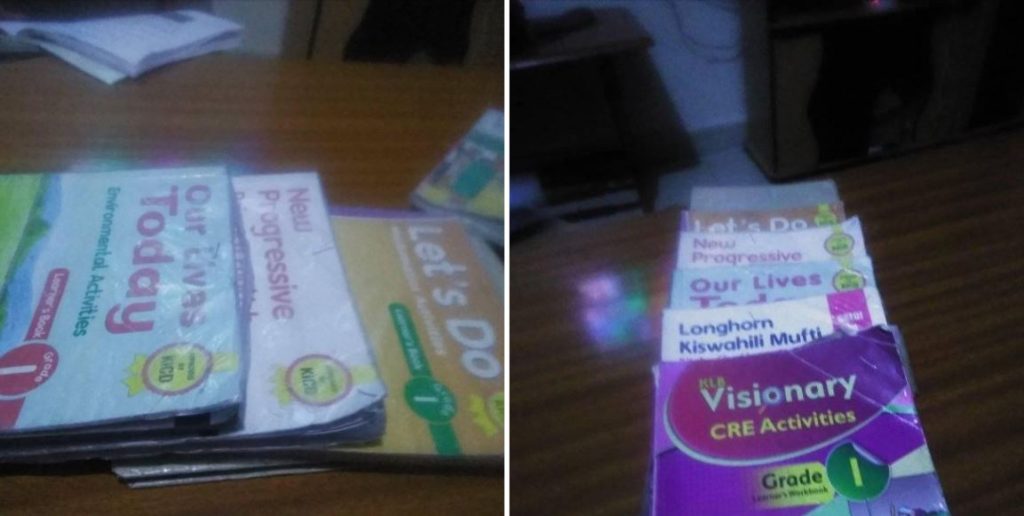The Kenyan government is in the process of phasing out the 8.4.4 system of curriculum and slowly but surely rolling out the Competence Based Curriculum (CBC). The first lot of learners that will go through the CBC system exclusively are in Grade 5 now.
The new Curriculum may have a different objective compared to the now-being phased out 8-4-4 System, but it’s becoming obvious that the cost implication to the parents was never considered.
The CBC system tends to be very expensive, and this is likely to widen the gap in the education system among Kenyan children, especially those from well off backgrounds and the rest.
Grade 1 parents are already overwhelmed with the number of textbooks they are required to buy for their children. Even the middle class parents are feeling it.
“Forget 2022 politics, 27 exercise books and numerous textbooks for a grade 1 child is a conversation we need to have as a country,” writes Ahmed Mohamed on Twitter in a post that has gone viral.
Textbooks alone will cost about KES 9,000 per child. This excludes other materials requirements along the terms which can be estimated at KES 3,000 per child. This results to almost 12k per Grade 1 child, excluding the school fees, feeding, transport etc.
READ ALSO: What The Police Did At Kangogo’s Victim, John Ogweno’s Burial Angers Kenyans (VIDEO)
The decision by curriculum implementers to introduce write-on books was also ill advised as most cannot be re-used.
There are so many parents out there who can’t afford the CBC requirements even for lower primary. Ideally, the children will still go to school but unfortunately, the children will be less the required books!
Someone would tell those who can’t afford books in private schools to take them to Public Schools where a number of books are provided.
Unfortunately, the number of Primary Schools in 2020 in Kenya was 32,344 of which 9,058 were Private Schools (that’s 28% or nearly a third) with an enrollment of 2 Million in Private Schools. This would obviously overstretch the already worsening situation in public schools and affect the quality of education.
Unfortunately, pupils in the public schools don’t get all the books from government, and even if they were, this would be too expensive for the government to pay.
With about 13 Million children in Primary and Pre-Primary Schools in Kenya and even assuming a cost of about 7,000/= per year (note this is assuming the economy of scale), this would then cost the government almost 100 Billion annually. How sustainable is this?
The KES 100 Billion excludes other costs associated with the education, and actually from the 2020/2021 Budget, the education docket was allocated the lion’s share of about KES 500 billion. That is almost 20% of the Government Expenditure. While investing in education is key and critical, several sectors like health remain underfunded which affects the entire human cycle.
